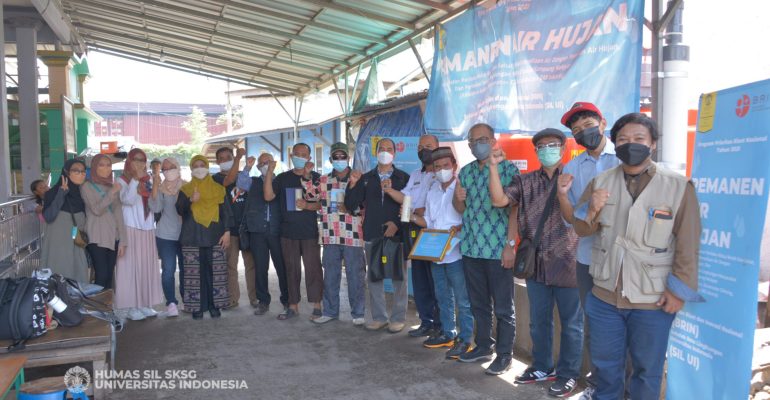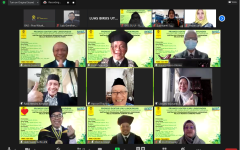Rainwater Harvesting System Installation Inaugurated, to Reduce Clean Water Crisis in Kalibaru Fisherman Village
August 9, 2023 2024-12-21 17:17Rainwater Harvesting System Installation Inaugurated, to Reduce Clean Water Crisis in Kalibaru Fisherman Village

Rainwater Harvesting System Installation Inaugurated, to Reduce Clean Water Crisis in Kalibaru Fisherman Village
On December 22, 2021, the School of Environmental Sciences of the University of Indonesia held an inauguration ceremony for the installation of a rainwater harvesting system, or what can be called SPAH. The SPAH installation was carried out in two RWs in Kalibaru Village, namely RW 15 and RW 1.
It was inaugurated directly by the Research Manager as well as the Head of the UI Master of Environmental Science Study Program, Dr. Hayati Sari Hasibuan and the parties present included the Head of Kalibaru Urban Village, the Mayor of North Jakarta, the Regional Secretary of DKI Jakarta Province, the Head of the Regional Development Planning Agency of DKI Jakarta Province, the Head of the DKI Jakarta Provincial Water Resources Office, the Head of the DKI Jakarta Provincial Environmental Service Office, the Head of the North Jakarta City Water Resources Office, the Head of the North Jakarta City Environmental Service Office, the Chairperson of the DKI Jakarta Regional Research Council, the DKI Jakarta SDGs Center Leader, and the BRIN Assessor.
The inauguration of the SPAH installation is the culminating activity of the Community Service and Empowerment program that has been carried out since July 2021. This Community Service and Empowerment Program is also integrated with other activities, namely the installation of solar panels, shell waste management, and urban farming education.
This event was carried out by signing the minutes and symbolic handover from the University of Indonesia to the Kalibaru Village. The background of making this SPAH is because coastal areas are areas with high potential for clean water crises. The coverage of clean water services from PAM Jaya in the DKI Jakarta area has only reached 60%, so residents are forced to buy jerry can water, refill gallon water, and groundwater usage fees that do not meet drinking water quality standards. Therefore, other alternative sources of clean water are needed. (Photo: PW)







